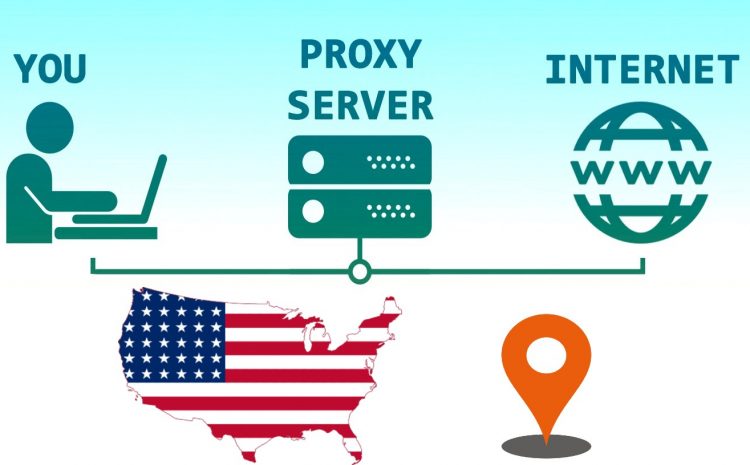The working principle of the US proxy IP address mainly involves hiding the user's real IP address through a proxy server so that the user can access restricted or geographically restricted websites and services.

I. Basic Concepts
The US proxy IP refers to a network service through which the user's IP address is changed to a US IP address. This is usually achieved through a third-party server (i.e., a proxy server) located in the United States and has one or more US IP addresses.
II. Workflow
User sends a request: When a user wants to access a restricted or geographically restricted website or service, their device first sends a network request to their Internet Service Provider (ISP) or local network.
Request forwarded to the proxy server: The user's request is then forwarded to a proxy server located in the United States. This is usually achieved by configuring the user's network settings (such as a browser, operating system, or a specific network application) to specify the use of a proxy server for connection.
Proxy server sends a request: After the proxy server receives the user's request, it sends a request to the target website or service as itself (i.e., using its own US IP address).
Target website responds: After the target website or service receives the request from the proxy server, it processes the request and sends response data back to the proxy server.
Proxy server forwards response: After the proxy server receives the response data from the target website, it forwards the data back to the user's device.
User receives data: The user eventually receives the response data from the proxy server and can view or use the data on his device.
III. Key features
Hide real IP: By using a proxy server, the user's real IP address is hidden, and only the IP address of the proxy server is exposed to the target website or service. This increases the user's privacy protection and security.
Break through geographical restrictions: Since the proxy server is located in the United States and has a US IP address, users can easily access websites and services that are limited to US users.
Improve speed and stability: In some cases, using a proxy server can improve the speed and stability of users' access to US websites. Especially when the user's original network connection is unstable or slow, connecting through a proxy server may provide better performance.
Versatility: US proxy IP addresses are not only suitable for individual users to access restricted content, but are also widely used in cross-border e-commerce, social media operations, data collection and analysis, software development and testing, and many other fields.
The working principle of the US proxy IP address is to hide the user's real IP address through a proxy server and allow users to access restricted or geographically restricted websites and services as US IP addresses. This technology provides users with more online operation possibilities, but it also requires users to pay attention to privacy protection, compliance with laws and regulations, and choose reliable service providers.
Related Recommendations
- What is the relationship between IP address and website domain name?
- 2025 's latest tutorial: How to configure proxy IP in fingerprint browser
- What are the techniques for Python Weibo crawling?
- 5 things you need to test before buying and using static residential agent IP
- TikTok Live Broadcast Anti-Blocking Tips: Two golden parameters for stable streaming push by proxy IP
- The future is here: Pure IP guides new trends in Internet development
- ChatGPT and Proxy IP: Innovation in Identity Management in the AI Era
- IP blacklist and IP whitelist: Definition and role
- What is family home IP? Comprehensively analyze its definition and application
- Which is safe, dynamic IP or static IP, and how should I choose?

